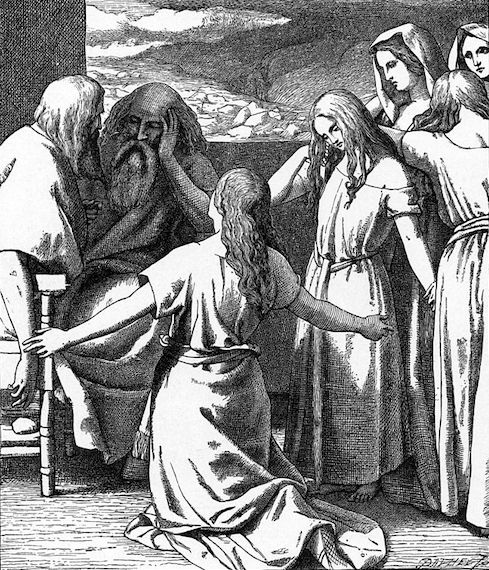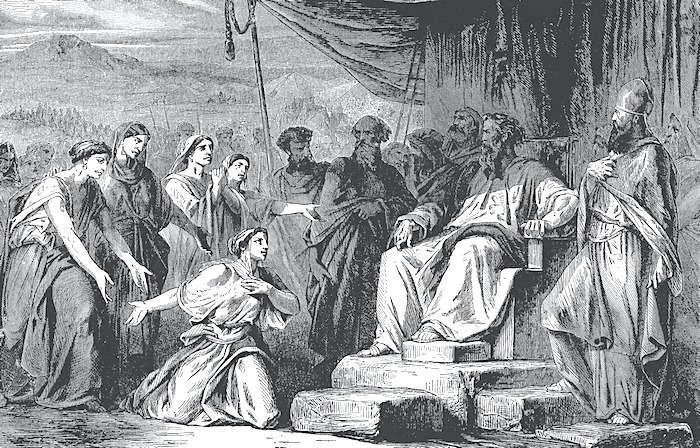 According to Deuteronomy 25:5-10, in Israel when a man died without a son, his wife would be taken in marriage by one of his other brothers. The reason was so that the man’s “name would not be cut off” and his property would pass on to a male heir.
According to Deuteronomy 25:5-10, in Israel when a man died without a son, his wife would be taken in marriage by one of his other brothers. The reason was so that the man’s “name would not be cut off” and his property would pass on to a male heir.
This also assured that the widow would be able to remain part of the man’s family as she raised their other children, instead of needing to go off to find a new husband.
This practice is still in place in many traditional cultures around the world, including in Uganda. So I asked my Ugandan colleague, Dr. Milly Erema, who is an Old Testament professor at Uganda Christian University, about what the rules were for levirate marriage among her Lugbara people. (Read more about Dr. Erema’s qualifications and our relationship here.)
I was particularly interested in the fact that in Numbers 27:1-10, there is a case where Moses declared that the four daughters of Zelophehad could inherit his property. Was this something true in other cultures too?
We just had this conversation via WhatsApp this afternoon, which you can read below:
Lois: I have a Bible question for you about Levirate marriage. There is a case in Numbers where Moses says that if a man has only daughters, they can inherit his property. What if a family had one son and the rest daughters – if the man died, would his property go to his sisters? And what would happen with his widow?
Milly: In my culture a woman can only inherit property through a male figure. This dead man’s sisters cannot inherit his property! The sisters only get their property through their husbands when they get married. Then in marriage when they have male children, the women inherit property through those male children.
If the wife of the deceased man has male children, she will inherit her husbands property through those children. If the children are still young, she will live on the land and use the land under the supervision of a custodian, until the children grow up to take care of their own property.
If the woman has no children, then the property goes back to the family of the man. If one of the deceased man’s brothers accepts to marry the widow, then she retains her husband’s property through marriage to his brother. The children the widow gets with her new husband belong to the deceased man! And the property remains for the widow and the children she gets with her new husband! If nobody accepts to marry her, she goes back to her father’s house, leaving behind all the property of her deceased husband.

Lois: So the case with Zelophehad’s daughters does not apply in your culture, it sounds like. Would you say that the Torah was being progressive to women there?
(I’ve written before about Milly’s observation that by African standards, the Law of the Rebellious Son is shockingly progressive.)
Milly: I think so. Maybe Moses allowed that due to the fact that, like in my culture, girls have no right to their father’s or brother’s property, especially land!
In the case of death of a father, greedy brothers can force their sisters into early marriage so that the brothers can take ownership of their father’s entire property. Such situations subject the girls into desperation in case there is no man willing to marry any of the girls!
Taking away the whole land from unmarried women/girls many times leads to destitution! These women/girls end up enslaved by other families in order for them to survive!
Maybe that’s why Moses allowed them to inherit property. Up to today, in my culture, a woman cannot inherit any family property! This situation has subjected many women to destitution!
However, today, an influential woman can be given authority to develop an idle customary land for the benefit of her community. Or a woman who has enough money can purchase her own property in her name.
However, if she is married, the property will still be known to belong to her husband. If she is not married, then her property will be known to belong to her brothers. If she is a widow, the property will be taken to belong to her male children not the female ones.
But in extreme circumstance where the surviving woman/girl has no close paternal surviving relatives due to wars or epidemics, which is very rare, the woman/girl can become a custodian of her family’s property!
I was just consulting one of the educated men in our village concerning this on phone. That’s why it took me some time to write back to you.
(Note from Lois – Before answering, Milly had called one of the leaders of the Lugbara village in rural northern Uganda where she comes from, where people still live according to ancient laws. She has a unique ability to connect with traditional authorities when she compares African practices with those of the Bible.)
As you can see, Milly and I have some of the most fascinating conversations about the Bible.

Christina Kohler says
Given Jesus’ teachings on marriage and family, how would he view the practice of Levirate Marriage in African cultures where property and inheritance are tied to the marriage of a widow to her deceased husband’s brother?